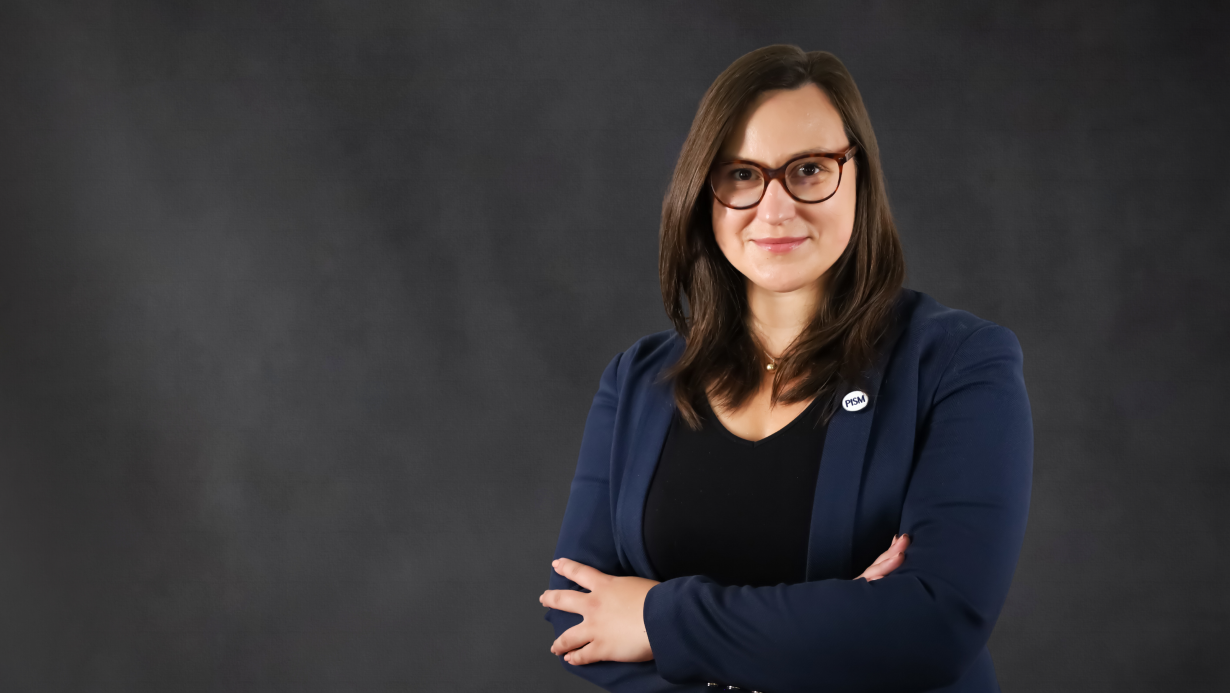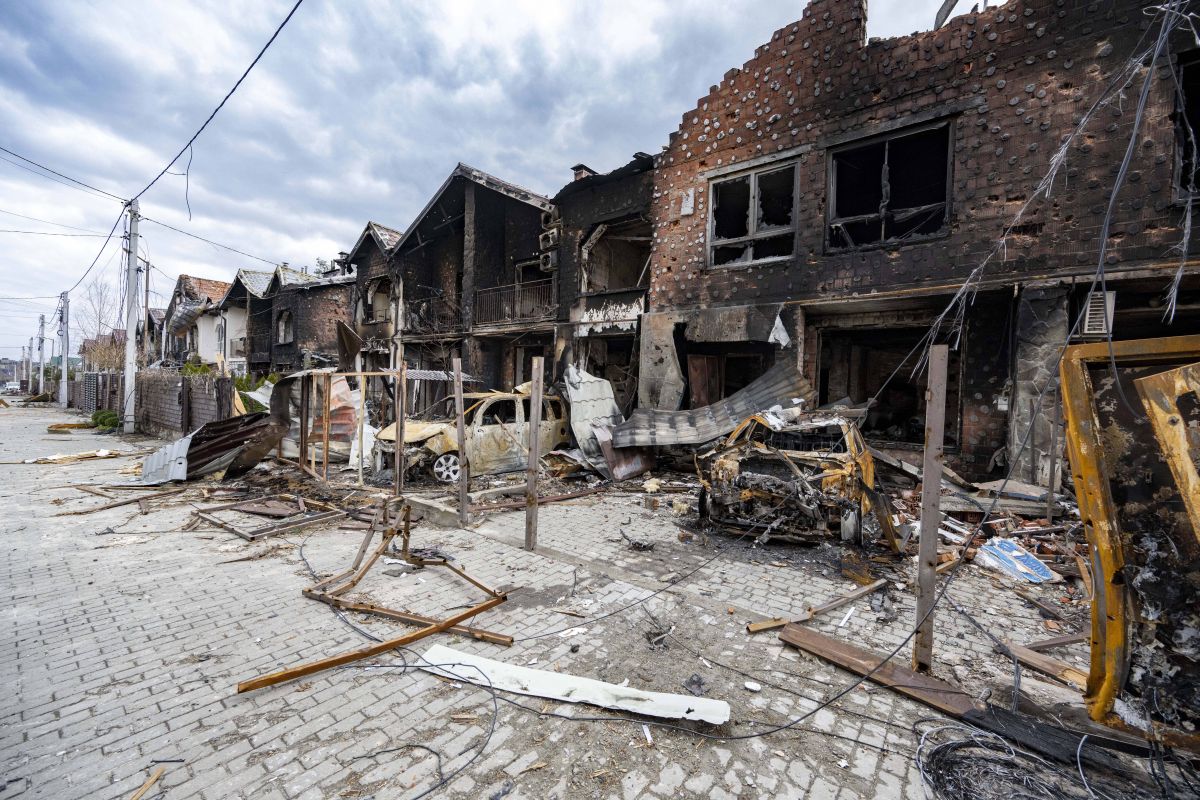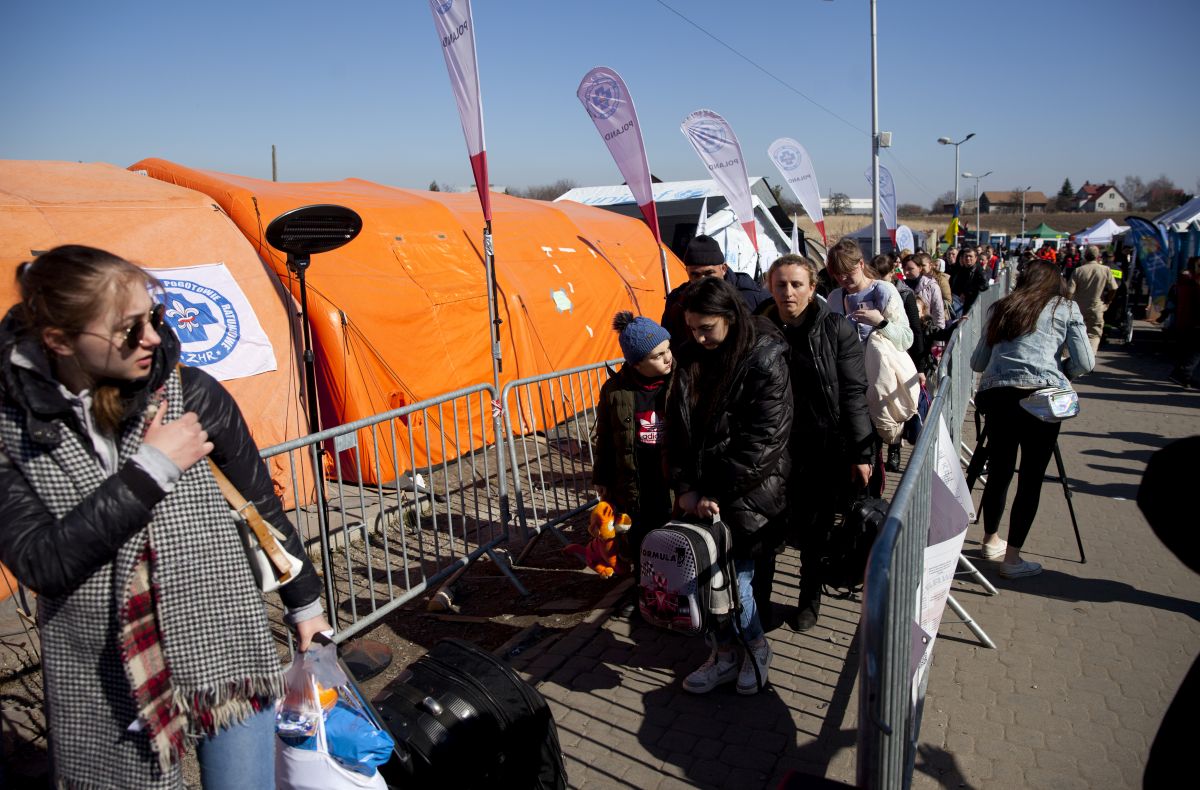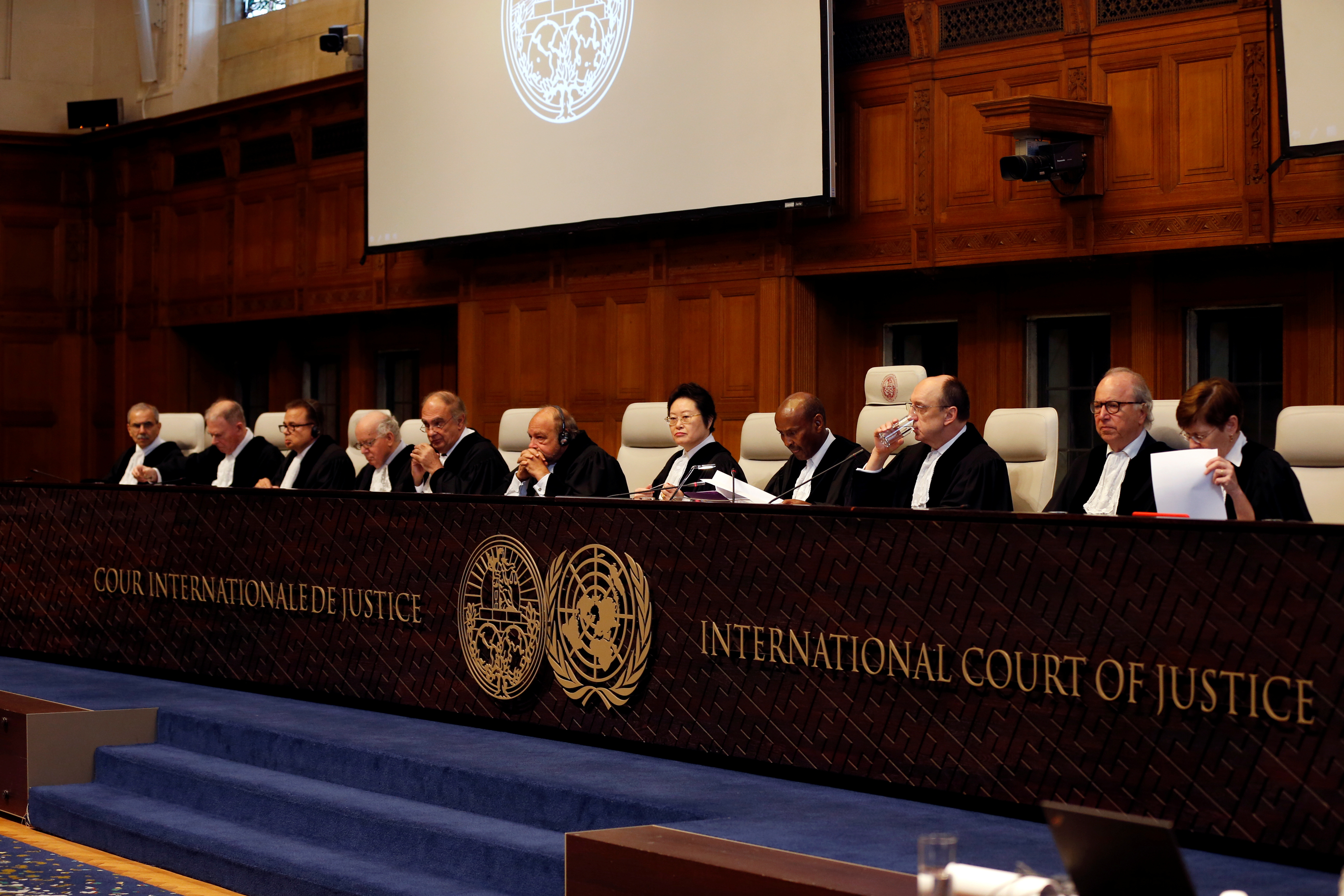EU Supports the Ukrainian Justice System in the Face of War
The EU has joined forces with Ukraine, third countries and the International Criminal Court (ICC) to document crimes committed in Ukraine. It also has reformed Eurojust, the EU Agency for Criminal Justice Cooperation, which was engaged on an unprecedented scale in the coordination of judicial activities of the Member States and organisational, training, and financial assistance to the Ukrainian prosecutor’s office and the ICC. Thanks to this, the agency has a chance to increase its importance at the EU level and become a permanent partner of international courts.
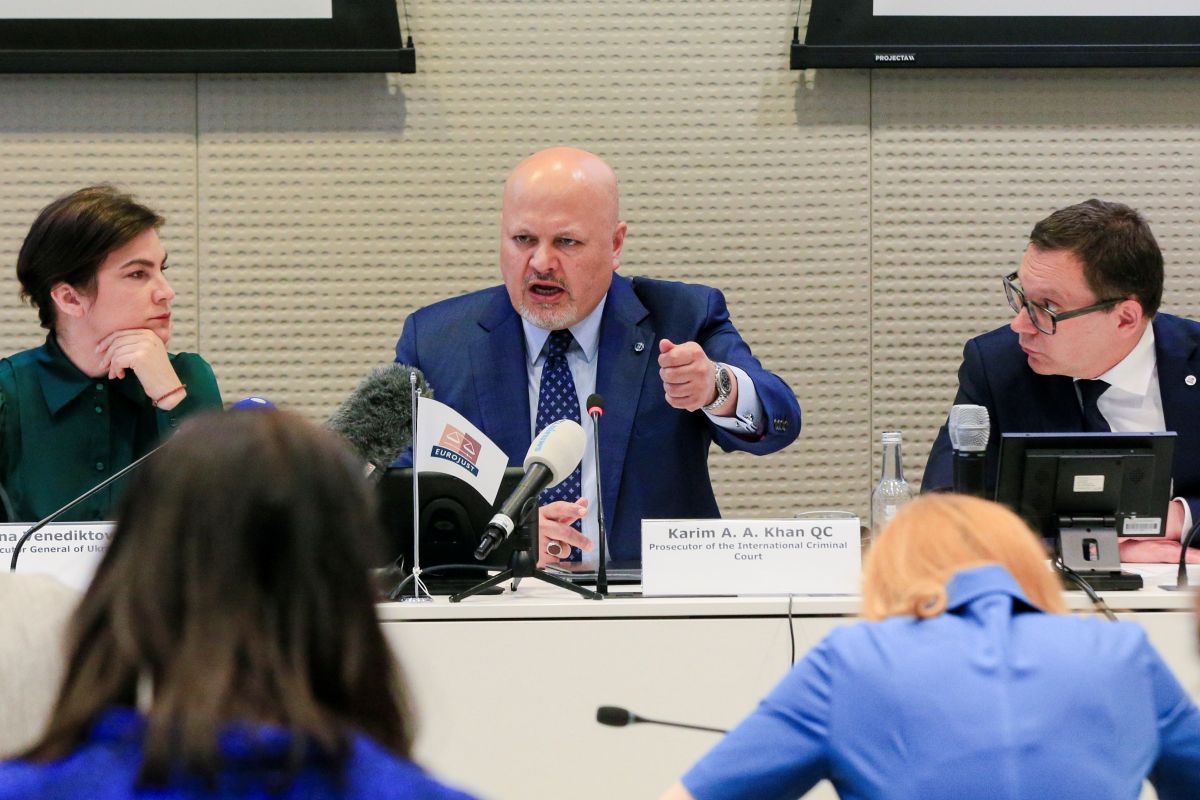 EVA PLEVIER/ Reuters/ FORUM
EVA PLEVIER/ Reuters/ FORUM
The EU and Ukraine cooperated in the field of justice even before the outbreak of the war. For example, the civil EU Advisory Mission (EUAM), established in 2014 at the request of Ukraine, supported reform of the country’s civil security sector. Eurojust and the Ukrainian prosecutor’s office concluded an agreement in 2016 that provides for, among others, strengthening cooperation in the fight against organised crime and establishing a Ukrainian liaison prosecutor at Eurojust and an agency contact point in the Ukrainian administration. It also allowed the Ukrainian representative to attend some Eurojust meetings and access selected operational tools, secure communication channels, and agency premises.
Assistance and Reforms
In response to crimes committed in Ukraine, the EU and partner countries requested the ICC to initiate an investigation. On 12 April, Justice Commissioner Didier Reynders handed over to EU justice ministers a list of needs reported by the then Ukrainian Prosecutor General Iryna Venediktova, including support from forensic experts and trainers and the provision of evidence-gathering equipment. At the same time, the EU co-financed the overall expansion of the ICC’s investigative capacity with €7.25 million. The EC also announced its readiness to continue supporting Ukrainian investigators with personnel, financing, and technical assistance. Agencies of the EU Area of Freedom, Security and Justice prepare analysis and reports, provide information on, among others, proceedings concerning crimes committed in Ukraine. At the request of the Ukrainian Ministry of Justice, the EU Agency for Law Enforcement Training (CEPOL) extended training for Ukrainian officers carried out under the TOPCOP project to war crimes and plans to conduct it by the end of this year.
In response to the challenges of war, the EU also reformed the EUAM and Eurojust. Currently, EUAM provides Ukraine with humanitarian aid, financial aid and equipment, and supports the investigation of crimes by Ukrainian law enforcement agencies, also operating in the EU member states and Moldova. In cooperation with Polish police, EUAM trains Ukrainian prosecutors and investigators in the prosecution of war crimes. EUAM staff also participates in the Atrocity Crimes Advisory Group (ACA) and Mobile Justice Teams (MJT). Initiated by the EU, the U.S., and the UK, the ACA aims to better manage human and financial resources in prosecuting crimes. The MJT consists of foreign and Ukrainian experts conducting field research deployed in accordance with the needs of the Ukrainian prosecutor’s office.
The EU has also provided Eurojust with new competences. An amendment to the Eurojust regulation proposed by the European Commission on 25 April entered into force on 1 June— an unprecedented pace for the EU. The most important change was the establishment of a database for collecting evidence of a crime and empowering the agency to analyse the materials stored in it, including satellite photos, audio, and video recordings, DNA profiles, and fingerprints. With this information, Eurojust is to identify links between cases pending in EU countries, possible gaps in evidence, and advise on next steps. This is intended to increase the coordination of national efforts and enable the consolidation of evidence from different jurisdictions. It is also convenient for witnesses, who will not have to testify several times. Another important change is enabling Eurojust to work directly with the ICC. This change is seen in, among others, the organisation of meetings of its chairman, Ladislav Hamran, with representatives of Ukraine and the ICC.
Organisational Support
On 25 March, Poland, Lithuania, and Ukraine, joined by Estonia, Latvia, and Slovakia on 31 March, as well as by the ICC (for the first time ever) and Eurojust, established a Joint Investigation Team (JIT). A JIT is one of the most advanced forms of cooperation between judges, prosecutors, and law enforcement agencies. Unlike traditional judicial cooperation, it relies on direct contact and joint investigative operations without the intermediation of ministries. Eurojust, within which the JIT secretariat operates, supports it with analysis, organising information and evidence, equipment, travel, translation costs, etc.
Another instrument to help Ukraine is the Genocide Network (GN, European Network for investigation and prosecution of genocide, crimes against humanity and war crimes). It operates on a larger scale, bringing together EU and other countries, some UN agencies, specialised organisations, and non-governmental organisations (NGOs). On 11 March, it met at an extraordinary meeting with the participation of the Prosecutor General of Ukraine, the ICC Prosecutor Karim Khan and more than 130 representatives of law enforcement agencies and NGOs to exchange information on the actions taken. It organises trainings with Eurojust for the authorities of the EU countries and Ukrainian prosecutors on working with NGOs and the preparation of indictments of people accused of committing international crimes. In cooperation with the ICC, it trains investigators in the standards of collecting evidence so that they can be admitted in proceedings.
In addition, Eurojust coordinates the activities of task forces established to implement sanctions imposed on oligarchs, the EU Freeze and Seize Task Force and the G7 REPO (Russian Elites, Proxies, and Oligarchs Task Force) and their contact with the U.S. and Ukraine’s KleptoCapture. It also provides them with information that facilitates the freezing of Russian assets.
Challenges
Despite active involvement in various cooperation formats, it is sometimes difficult to translate the EU’s declarations into action. For example, the entry into operation of the Eurojust database is awaiting an opinion from the European Data Protection Board. This hampers the efficient reform of the Eurojust Regulation and impedes the effective management of evidence gathered. If the database is successfully launched, the restriction on submitting evidence only by public entities may be a serious limitation. Social activists who come into direct contact with victims will therefore be forced to act through the national authorities. Although this structure is intended to, among others, ensure the appropriate quality of the reported materials, this may expose the authorities of the EU countries to being overwhelmed with the amount of submitted data.
EU financial support is filling the shortfalls from the ICC, whose actions have mitigated budget problems. However, the involvement of the international community in helping the Ukrainian judiciary is unprecedented; it can be expected that it will be difficult to obtain or maintain such interest in other conflicts. Although the EU and some of its countries have provided additional general funding to the ICC in response to the court’s appeal, non-EU media have already made accusations against the ICC of overly focusing on Ukraine, and its donors of trying to influence the court’s priorities.
Conclusions and Perspectives
The expansion of Eurojust’s competences and the support of the Ukrainian prosecutor’s office and the ICC by the EU is beneficial from the point of view of Poland, which has actively participated in documenting crimes committed in Ukraine since the beginning of the war and supported the activities of the ICC. Eurojust responds to the need to coordinate multiple formats of cooperation with Ukrainian law enforcement agencies. At the same time, neither the EU nor the agency aspires to take over the competences of the Ukrainian or international judiciary, and they address the needs reported by them.
With the EU helping the Ukrainian judiciary after the Russian attack, EU judicial cooperation is taking on a new quality. Interaction with third countries, for the first time on such a scale, includes international crimes. The establishment of regular cooperation between Eurojust and the ICC shall be assessed positively. This leads to the consolidation of international efforts to punish the perpetrators of the crimes, and the experience gained in this way opens up prospects for wider cooperation with the tribunal. The ICC itself sees such an opportunity, with its prosecutor already announcing his will to ensure the flow of information both ways (the practice to date has been rather to transfer data to the court, but not the other way around).


